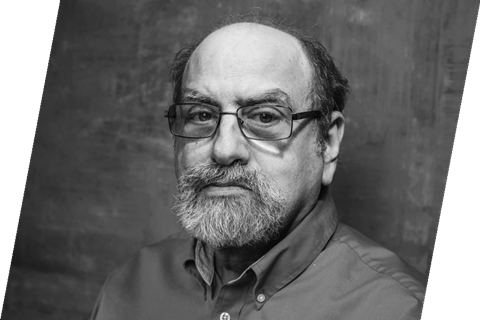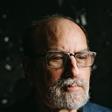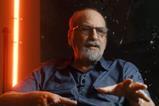How did two children raised as atheist communists in 1960s America, become Christians – thousands of miles apart – and rekindle their friendship decades later? Sy Garte shares his remarkable story

If there was ever a truly committed child of the revolution, it was me.
My great-uncle fought in the Russian revolution, and one of my grandfathers, who founded the upholsterers’ union in Boston, USA, led a delegation of American workers to visit the Soviet Union in 1932.
He, alongside my other three grandparents, were all communists. And their children, my parents, joined the American Communist Party. By the time I was born, right after the second world war, they had left the Party but remained diehard Stalinists.
Red diaper kids
What was it like growing up in a communist, atheist household in 1950s and 60s New York? At best, tricky. At worst, it was terrifying. Almost all the kids I knew were either Catholic - and so went to something called “mass” - or Jewish - and so went to “Hebrew school.” I didn’t know what either of those things were.
Perhaps, as this next generation matures, we will see a ’great awakening’
My family were ethnically Jewish, but I had very little idea of what that actually meant. We never set foot in any kind of house of worship. We exchanged gifts on New Year’s Day, as was done in the Soviet Union. I read children’s books printed in Russia.
“Atheist” was not a word heard much on the street, but that’s what I was. The neighbourhood gang (mostly Irish Catholics) did not look kindly on my religious nonconformity and the Jewish kids at school couldn’t understand why I didn’t go to Hebrew school.
But I was not alone. There were ex-Party members scattered throughout New York, and I got to meet quite a few other “red diaper” kids, as we came to be known. There were even a few of us at my school. We sang folk songs and workers’ ballads; we talked about civil rights and Cuba.
Later, as the 60s became more violent, some of us joined radical groups and did radical things. A few got into drugs and didn’t do well. A friend (I’ll call him Joe) showed up at my apartment one day asking for a loan, so he could get to California before the police caught up with him. That was in 1973. I never saw him again.
A long road
I dropped all vestiges of my political radicalism in the following years and became a research biochemist and professor. My scientific training led me to question my assumptions of rationalist materialism as the only path to truth, and I became curious about this thing called spirituality.
Thus, I began a long journey from the strictest atheism to agnosticism. And then onto a sort of hopeful theism. It took decades but I finally crossed a threshold (or was dragged over it by the Holy Spirit), and was baptised a Christian in my 60s. A couple of years later I retired, and devoted my life to spreading the good news of Christ.
Unbeknownst to me, during this time, my old friend Joe was fighting his addictions - until he met a woman who turned him around. He married her, got a steady job, and settled down. Fast forward a few decades, and he found me on Facebook.
My scientific training led me to become curious about this thing called spirituality
We caught up, told each other a bit about our lives in the 45 years since we had last met, then he dropped the bombshell: “You’ll never believe this,” he wrote, “I am a Christian.” Given our shared background, he might have expected me to say something nasty, or not answer at all. I doubt he expected what I wrote back instead: “You won’t believe it either. Me too.”
Seeing the light
Since then, I have heard about – and met - many people all over the world who have come to Christ despite having no knowledge of Jesus or faith background. Children of atheists, communists and deconverted Christians; people born into Hindu, Jewish or Muslim families; people living in anti-religious societies like China; Western Europeans who are searching, as I had been, for something they didn’t know was missing from their lives.
Perhaps, as this next generation matures, we will see a “great awakening” of people like Joe and myself, those walking in darkness who have seen a great light (see Isaiah 9:2).
Our parents were not evil people, even if they did follow a failed idea promulgated by cynical liars. They thought they were doing good for humanity and a better world. They indoctrinated us to despise a faith they had no actual knowledge of. If they had, they might have begun to understand why some of their heroes, like the Reverend Martin Luther King Jr, espoused the truly radical notion of loving everyone, even one’s declared enemies.
I would like to think that perhaps Jesus, looking down on us poor sinners, might have seen that social media exchange between two old friends and smiled.




































No comments yet